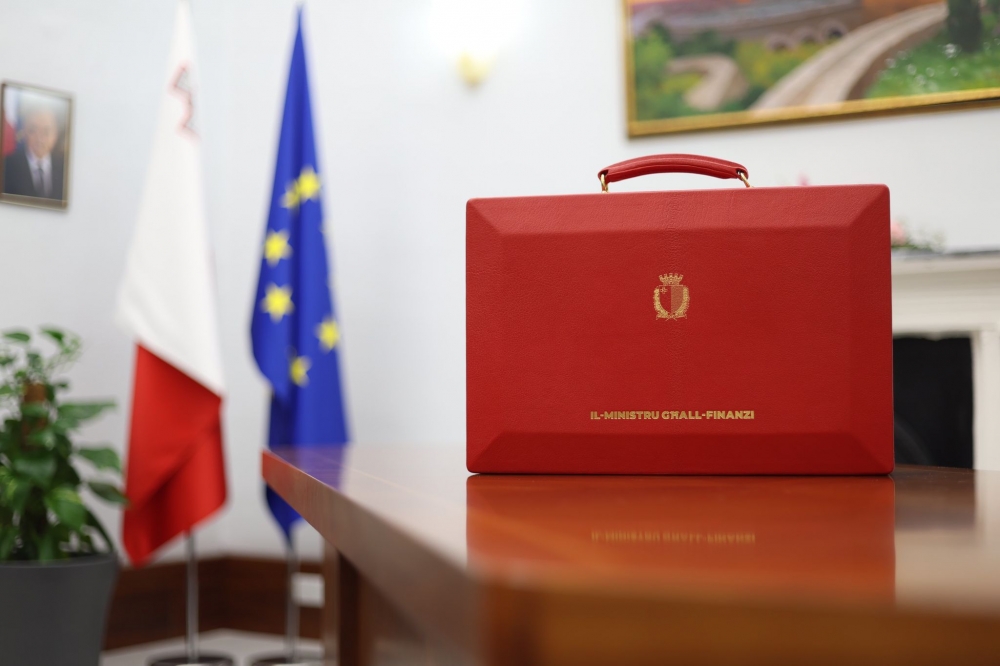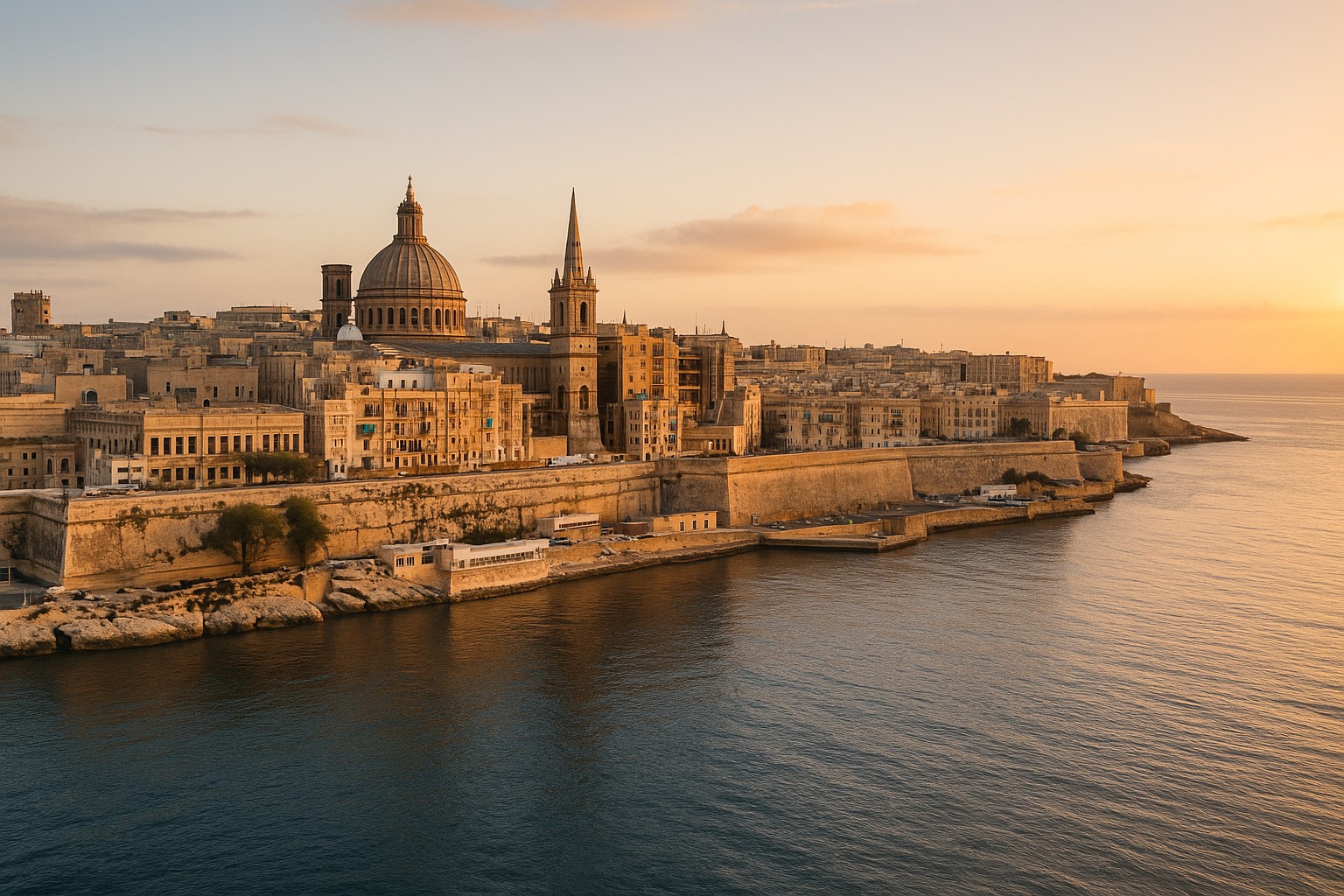Introduction
Malta’s Budget 2026, presented by Finance Minister Clyde Caruana on 27 October 2025, is described by government as a social and middle class budget. While fiscal consolidation remains a priority, the Budget introduces sweeping tax cuts for families, significant support for businesses and a wide range of social policy measures.
Snapshot of the economy
- GDP growth forecast: 4.1% in 2025 with continuing momentum in 2026.
- Inflation: expected to stabilise near 2.2 %.
- Cost of Living Adjustment (COLA): €4.66 per week.
- Deficit projection: reduction to 2.8 % of GDP in 2026, with public debt remaining below 50 % of GDP.
Economic and Fiscal Outlook
The government notes that domestic consumption, maturing public investment projects, digital services and tourism will continue to propel growth. Energy price subsidies will help keep inflation in check.
Tax Relief for Families
The centrepiece of Budget 2026 is the new family tax rates that gradually expands the zero tax threshold and lowers rates for parents.
Married and parent computations (with one child or two+ children) benefit from an increased zero tax band and lower marginal rates over from 2026 to 2028. For example, parents of two or more children pay no income tax on the first €18,500 per parent in 2026 which rises to €30,000 by 2028.
Why it matters: These changes constitute the largest tax cuts for families in Malta’s history and are designed to boost the birth rate and ease mortgage pressures on young couples.
Business Support: Micro Invest and Investment Tax Credits
Businesses benefit from a suite of incentives aimed at encouraging digitalisation, retaining workers and investment.
Enhanced Micro Invest scheme
- Higher caps: tax credit ceiling rises to €65,000 in Malta and €80,000 in Gozo, covering up to 65% of eligible costs.
- Wage support mechanism: funds 65% of wage increases for employees with over 4 years’ service, capped at €780 per year; support is 80% in Gozo with a €960 cap.
- Overall benefit limits increase from €45,000 to €65,000 (Malta) and €80,000 (Gozo).
New Investment Tax Credit and R&D incentives
- 60% Investment Tax Credit on qualifying capital equipment (including machinery, IT and cyber security). The credit is spread over four years.
- Example: A €100,000 machinery purchase yields €60,000 in tax credits over four years.
- 175% tax deduction for R&D and innovation expenditure, together with accelerated write offs for AI, automation and digitalisation projects.
- National Talent Register created under JobsPlus to match skills and training with employer needs.
Pensions and Social Benefits
Significant increases in pensions and assistance aim to protect vulnerable groups and ensure dignity in retirement.
Pension and allowance changes
- Pensioners: around 100,000 pensioners to receive an addition of €10 per week.
- Widows/widowers: +€3.50 per week for about 7,000 people.
- Widowed parents: +€10 per week until the youngest child turns 23.
- Supplementary Allowance: rises to €27.30 per week for couples and €14.40 for single persons.
- Annual bonus: increases to €250, paid to both spouses.
- Standardised COLA for pensioners: from 2027 all pensioners will receive a fixed €21.53 per week.
- Other supports: enhanced sickness and unemployment benefits; €75 top up for elderly persons living at home; €10 weekly allowance for individuals in drug rehabilitation.
Family and Children Measures
Expanded support for families
- Children’s Allowance: income ceiling rises to €30,000; eligible families receive an extra €250 per child, plus a means tested top up of up to €167.
- In-Work Benefit: +€75 per child in 2026, with plans for further increases.
- Birth and Adoption Grants: €1,000 for the first child, €1,500 for the second and €2,000 for the third and subsequent children; foreign adoption refund increases to €12,000 and local adoption refund to €2,000.
- Post secondary allowance: families receive €500 per student each year.
- Child-rearing credits extended for pension contributions up to three children under age 10.
Housing and Property Initiatives
Housing affordability and access remain central to social stability. Key measures include:
- First-Time Buyer scheme: made permanent; buyers are no longer disqualified if they previously owned non residential property.
- Equity sharing for 25 year olds: the Housing Authority covers half of the property price, repayable over 20 years.
- Deposit loan ceiling: raised from €225,000 to €250,000, with interest covered by the Housing Authority.
- First-Time Buyer grant extended: €1,000 per year for ten years, benefitting more than 7,000 people.
- Affordable housing units: 260 new units at roughly 30 % below market price.
- Rent assistance scheme (“Nikru biex Nassistu”): housing authority leases private properties for 1,300 families.
- Causa mortis duty relief: 3.5 % band doubled to €400,000 on main residences.
Inclusion
Enhanced support
- Invalidity Pension: persons with the highest incapacity now receive benefits equivalent to two thirds of the full pension, instead of minimum wage.
- Partial Invalidity Pension: introduced for those with serious mental health conditions who can perform some level of work.
- New disability tier: rate of 75 % of the standard rate.
- Carer’s Grant: increased to €5,368.89; therapy rebates increased to €1,000 per child and extended to age 23.
- Investment of €1 million for Special Olympics Malta to expand services and host an international swimming event.
Health and Community Care
Key health initiatives
- Kartuna r-Roża (Pink Card): free medicine entitlement extended to Supplementary Allowance recipients aged 65+.
- Coeliac support: monthly payment increased to €85 and paid via direct bank deposit.
- Obesity Clinic: structured programme for medical, nutritional and psychological care.
- Regional mental health centres: new centres in Bormla, the Central Region and the North.
- Elderly care: Home Helper rate increased to €10/hour and Carer at Home grant increased to €9,000/year.
- St Vincent de Paul Residence upgrades: renovated wards, new CT and MRI, expanded palliative beds and pilot dialysis unit.
Education, Skills and Employment
Developing human capital
- Malta National Talent Register: matches job seekers with industry needs and informs training plans.
Environment and Sustainability
- Home renovation grants: Ixtri Propjeta Sostennibli 2025 and Irrinova Darek schemes extended.
- Flood-relief projects: new works in Ħal Kirkop, Ħaż Żebbuġ and Marsa; Birkirkara flood tunnel extension.
Gozo and Regional Development
Major initiatives for Gozo
- Electric public transport: Aim for Gozo’s bus fleet to be fully electrified in 2026.
- Expanded fast ferry network: new routes linking Sliema and Buġibba to Gozo and establishing a terminal in Marsaskala.
- Rural airfield in Xewkija approved, enhancing connectivity.
- Hospital and school improvements: expansion of outpatients, renal and operating facilities, new helipad and hyperbaric chamber.
- Student support: €280 monthly allowance for Gozitan students studying in Malta.
- Victoria Park project: €20 million to transform a car park into the largest urban park in Rabat.
- Blossom Initiative: funding for mental health and well being programmes.
Governance and Public Administration
Improving public services and safety
- Local councils: a multi year €13.5 million framework agreement funds public spaces, pedestrian zones, road repairs and community hubs.
- Construction oversight: Building and Construction Authority (BCA) and Occupational Health and Safety Authority (OHSA) inspectorates doubled; mandatory contractor licensing and joint daily site inspections.
- Energy efficient buildings: Study commissioned so that from 2030 new buildings produce more energy than they consume.
How Taxentra Can Help You Navigate Malta's Budget 2026
The 2026 Budget introduces new opportunities for both individuals and businesses. At Taxentra, we are here to help you make sense of it all, from tax incentives and grants to strategic planning and compliance.
Contact us today to discuss how these Budget 2026 measures may affect you or your business!

